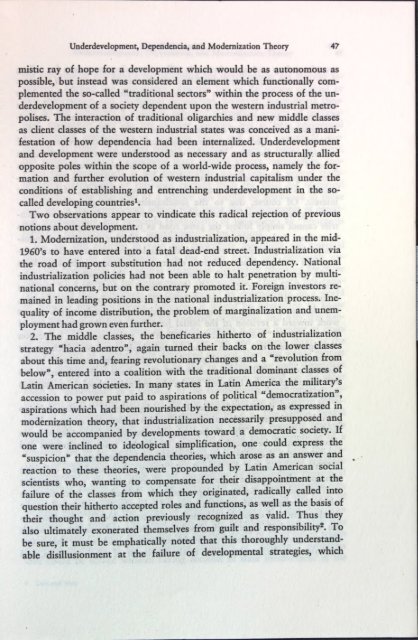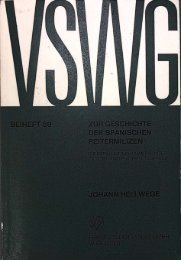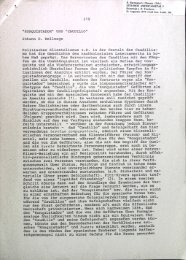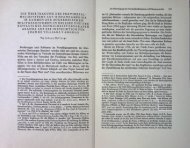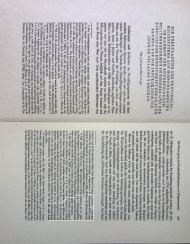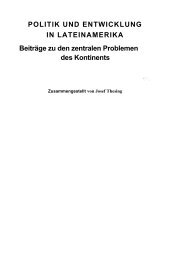9_Law and State_Volume 17
Create successful ePaper yourself
Turn your PDF publications into a flip-book with our unique Google optimized e-Paper software.
Underdevelopment, Dcpcndcncia, <strong>and</strong> Modernization Theory 47<br />
mistic ray of hope for a development which would be as autonomous as<br />
possible, but instead was considered an element which functionally complemented<br />
the so-called “traditional sectors” within the process of the underdevelopment<br />
of a society dependent upon the western industrial metropolises.<br />
The interaction of traditional oligarchies <strong>and</strong> new middle classes<br />
as client classes of the western industrial states was conceived as a manifestation<br />
of how dependencia had been internalized. Underdevelopment<br />
<strong>and</strong> development were understood as necessary <strong>and</strong> as structurally allied<br />
opposite poles within the scope of a world-wide process, namely the formation<br />
<strong>and</strong> further evolution of western industrial capitalism under the<br />
conditions of establishing <strong>and</strong> entrenching underdevelopment in the socalled<br />
developing countries1.<br />
Two observations appear to vindicate this radical rejection of previous<br />
notions about development.<br />
1. Modernization, understood as industrialization, appeared in the mid-<br />
1960’s to have entered into a fatal dead-end street. Industrialization via<br />
the road of import substitution had not reduced dependency. National<br />
industrialization policies had not been able to halt penetration by multinational<br />
concerns, but on the contrary promoted it. Foreign investors remained<br />
in leading positions in the national industrialization process. Inequality<br />
of income distribution, the problem of marginalization <strong>and</strong> unemployment<br />
had grown even further.<br />
2. The middle classes, the beneficaries hitherto of industrialization<br />
strategy “hacia adentro”, again turned their backs on the lower classes<br />
about this time <strong>and</strong>, fearing revolutionary changes <strong>and</strong> a revolution from<br />
below”, entered into a coalition with the traditional dominant classes of<br />
Latin American societies. In many states in Latin America the military s<br />
accession to power put paid to aspirations of political democratization ,<br />
aspirations which had been nourished by the expectation, as expressed in<br />
modernization theory, that industrialization necessarily presupposed <strong>and</strong><br />
would be accompanied by developments toward a democratic society. If<br />
one were inclined to ideological simplification, one could express the<br />
“suspicion” that the dependencia theories, which arose as an answer <strong>and</strong><br />
reaction to these theories, were propounded by Latin American social<br />
scientists who, wanting to compensate for their disappointment at the<br />
failure of the classes from which they originated, radically called into<br />
question their hitherto accepted roles <strong>and</strong> functions, as well as the basis of<br />
their thought <strong>and</strong> action previously recognized as valid. Thus ^ they<br />
also ultimately exonerated themselves from guilt <strong>and</strong> responsibility“. To<br />
be sure, it must be emphatically noted that this thoroughly underst<strong>and</strong>able<br />
disillusionment at the failure of developmental strategies, which


